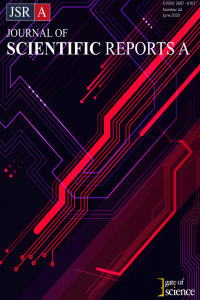KAYNAK SUYUNUN DİYATOMİT KAPLAMALI MEMBRAN FİLTRELER İLE SÜZÜLEBİLİRLİĞİNİN ARAŞTIRILMASI
Doğal diyatomit, yüksek yüzey alanına sahip olması
sebebiyle membran filtre üretiminde yaygın olarak kullanılmaktadır. Su
filtrasyonu amaçlı üretilen bu filtrelerin çalışma prensipleri derin-yatak olup
filtreler zamanla tıkanmakta ve süzme işlemi durmaktadır. Son zamanlarda geri
yıkama ile temizlenebilen ve uzun süreli süzme sağlayan filtrelerin üretilmesi
konusunda çalışmalar yapılmaktadır. Bu çalışmada, silika altlık üzerine
zenginleştirilmiş diyatomit tozu kaplanarak üretilmiş membran filtre,
Kütahya-Türkmendağı’ndan çıkan kaynak suyunun süzülmesinde test edilmiştir.
Kaynak suyunda bulunan kil tanelerinin ortalama çapları 0.5 mm’dir. Süzme işlemleri 5 bar basınç altında yapılmış olup
filtrasyon periyodik olarak uygulanmıştır. Burada süzme periyotları 5 dakika
olup her süreç sonunda filtre geri yıkama ile temizlenmiştir. Bu testler ile
filtrenin süzme kapasitesi ve süzülen suyun berraklığı belirlenmiştir. Membran
filtre ile süzülen suyun bulanıklılığı 2 NTU değerinden 0.1 NTU değerine
inmiştir. Aynı zamanda filtre yüksek süzme performansı sağlamakta olup her
periyodik süreçte 0.16 m3/m2 süzüntü vermektedir.
Anahtar Kelimeler:
Seramik filtre, Filtrasyon, Kaynak suyu
THE FILTERABILITY OF SPRING WATER WITH DIATOMITE MEMBRANE FILTER
The purified natural diatomite has high surface areas,
and thus the material used for membrane fabrication is advantageously for water
filtration. However, the diatomite membrane produced as deep-bed microstructures
did not high performance where the pores of the diatomite were clogged by the
filtered particles and thus the filtration rate was diminished. In membrane
technology, the recent studies are focused on the multilayer fabrication where
the filter easily cleanable by backflushing and thus produced long time usage. In
this study, the diatomite filter was fabricated using purified diatomite as a coating
material onto a silica substrate. Filtration testing of the present filter was performed
on spring water (located in Kütahya-Türkmendağ) which contained clay particles
being the mean particle sizes of at about 0.5 mm. The
filtration response of the membrane filter was tested in periodic pressure
filtration modes with the pressure of 5 bars. The feed water contained
sub-micron particles with the turbidity of two nephelometric turbidity units
(NTU). The filtration testing indicates superior filtrate clarity (0.1 NTU
turbidity) and the periodic filtration proved high separation capacity as 0.16
m3/m2.
Keywords:
Ceramic filter, Filtration, Spring Water,
___
- [1] O. Şan and Ç. Hoşten, “Filtration testing of a ceramic capillary filter produced from a highsilica glaze”, Minerals Engineering 15, 553-556 (2002).
- [2] O. Şan, “Microstructural Characterization of Capillary Filter Produced from a High SilicaContaining Glaze”, Materials Letters, 57, 2189-2192 (2003).
- [3] O. Şan and C. Özgür, “Dewatering Testing of a Ceramic Capillary Filter Produced from a High Silica-Containing Glaze”, Key Engineering Materials, Euro Ceramics VIII, Vol. 264-268, pp. 2223-2226 (2004).
- [4] O. Şan and S. Yener, “Capillary Filters Produced from a Quartz-Natural Zeolite-Lead Borosilicate Frit”, Industrial Ceramic, 25, 3, 183-186 (2005).
- [5] O. Şan and C. Özgür, “Fabrication of glassy ceramic membrane filters for filtration of spring water with clogging phenomena”, Journal of Membrane Science, 305, 1-2, 169-175 (2007).
- [6] C. Özgür and O. Şan, “Slip cast forming of multilayer ceramic filter by fine particles migration”, Ceramic International, 34 1935-1939 (2008).
- [7] O. Şan, C. Özgür and C. Karagüzel, “Preparation of High Performance Capillary Ceramic Filter Using Frit Glass Powder”, J.G. Heinrich and C. Aneziric, Proc. 10th ECerS Conf., Göller Verlang, Baden-Baden, 2116-2121 (2007).
- [8] O. Şan and C. Özgür, “Preparation of a stabilized cristobalite ceramic from diatomite”, Journal of Alloys and Compounds, 484, 920–923 (2009).
- Başlangıç: 2020
- Yayıncı: Kütahya Dumlupınar Üniversitesi
Sayıdaki Diğer Makaleler
KAYNAK SUYUNUN DİYATOMİT KAPLAMALI MEMBRAN FİLTRELER İLE SÜZÜLEBİLİRLİĞİNİN ARAŞTIRILMASI
Osman Şan, Cem Özgür, Muhterem Koç, Tuba Ergüler, Ali İmaretli
KARAKUYU GÖLÜ (AFYON) YÜZEY SUYU KALİTESİNDEKİ MEVSİMSEL DEĞİŞİMLERİN DEĞERLENDİRİLMESİ
Cafer Bulut, Ramazan Atalay, Kazım Uysal, Esengül Köse
PUZOLAN KATKISININ BETONUN KARBONATLAŞMA DERİNLİĞİNE ETKİSİ
Serkan SUBAŞI, Ahmet BEYCİOĞLU, Bekir ÇOMAK
TÜRKİYE’DEKİ TERMİK SANTRALLERİN ETKİNLİK ANALİZİ: PARAMETRİK VE PARAMETRİK OLMAYAN YAKLAŞIMLAR
Özge Yetik, Ramazan Köse, M.Arif Özgür, Oğuz Arslan
KENT KARAYOLLARINDA KAPASİTENİN BULANIK MANTIK İLE MODELLENMESİ
Nuran Bağırgan, İlker Şahinoğlu
KEMERLERİN STATİK ANALİZİ İÇİN BASİTLEŞTİRİLMİŞ BİR YAKLAŞIM
